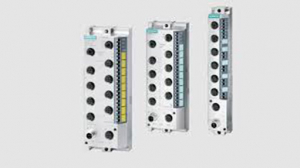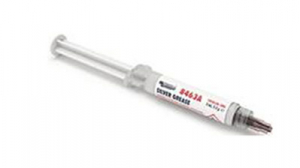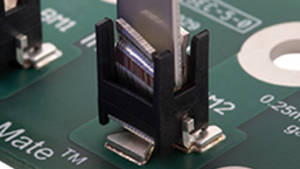Addressing the threat of interference

Whether for condition monitoring or positioning control, fieldbus communication is crucial for connectivity in most modern manufacturing and process environments. Often, however, fieldbus systems are susceptible to ElectroMagnetic Interference (EMI) caused by switching in power supplies, motors and HVAC systems in a plant. Here, Steve Hughes, Managing Director of REO UK, explores the impact of EMI on communications and how this can be mitigated.
Fieldbus is an industrial network system for real time distributed control, allowing for faster and better communication between equipment in a plant. The establishment of Ethernet-based fieldbuses such as Modbus, Profibus and Interbus in the 1970s and 80s created a demand for sharing data securely across field networks in real time. This demand continues to grow, as more technologies emerge to provide plant managers with increasingly comprehensive insight and control into operations.
The number of communication protocols used globally presents a big challenge to plant managers. Fieldbus technology overcomes this by offering a variety of interfaces compatible with many industrial control products. However, even the most modern technology has its practical limitations. One such limitation for fieldbus systems is the threat of EMI.
Due to lower cost and simpler installation requirements of copper-based electrical interfaces in fieldbus technology, stray electromagnetic energy can cause interferences. Copper is a good electrical conductor, which means industrial equipment is often subjected to physical damage from high voltage EMI.
However, one of the larger risks of EMI comes from the nature of the electrical systems found in manufacturing environments. Increasingly, more machinery motors are run by using Variable Speed Drives (VSDs), while electronic devices will often feature Switch-Mode Power Supplies (SMPSs). Both of these components produce high frequency electrical noise during use, which if left unfiltered can cause harmonic currents and EMI to propagate.
In addition to causing unreliable power supply to devices and leaving components susceptible to accelerated degradation, interference can affect the integrity of fieldbus data packages and reliability of communications - whether they are control signals or performance reporting - between devices and systems.
Fortunately, EMI can be mitigated with the installation of network isolators. These isolators must operate in a multi-kV range given transceivers in an industrial automation system is usually surrounded by motors, servo drives and Programmable Logic Controllers (PLCs).
Alongside network isolators to provide separation for key or particularly interference-prone equipment, mains filters can be used to mitigate EMI in electrical networks. Recommended for suppressing interference, REO UK’s CNW 101 is a single-phase mains filter with two single-stage lines for optimum dampening performance.
Ethernet-based fieldbuses continue to grow in popularity, and so long as technology evolves and manufacturing continues, this is unlikely to change anytime soon. As more industrial companies employ more devices in their plants, it is vital to ensure that machines are communicating so they do not affect system integrity. The solution here is to make sure manufacturers are equipped with filters and isolators to minimise interference.
Similar articles
More from REO UK
- Extended electrical choke capabilities on show 27th April 2021
- Simulation testing ensures products are top quality 18th January 2021
- Addressing the threat of interference 12th October 2020
- Rethinking electrical and electronics supply chains 9th October 2020












Write a comment
No comments